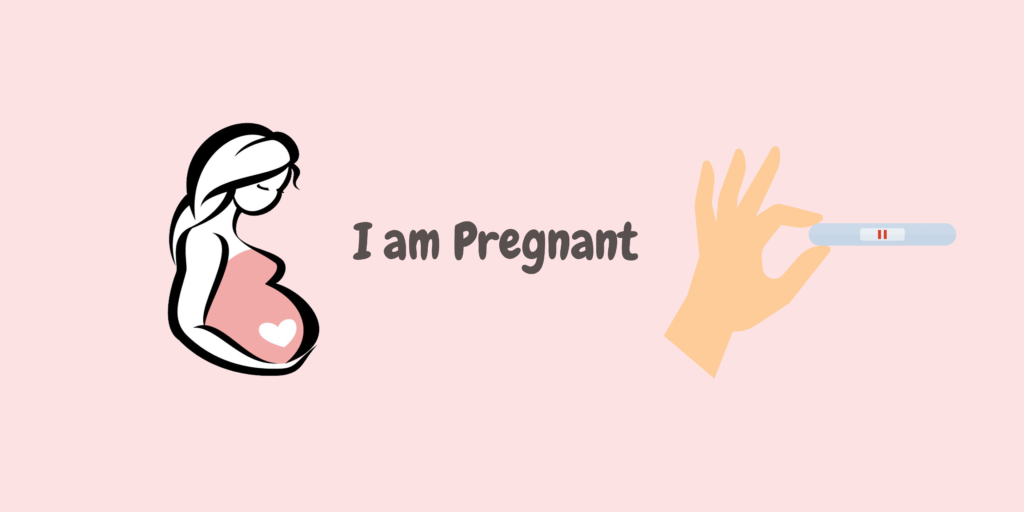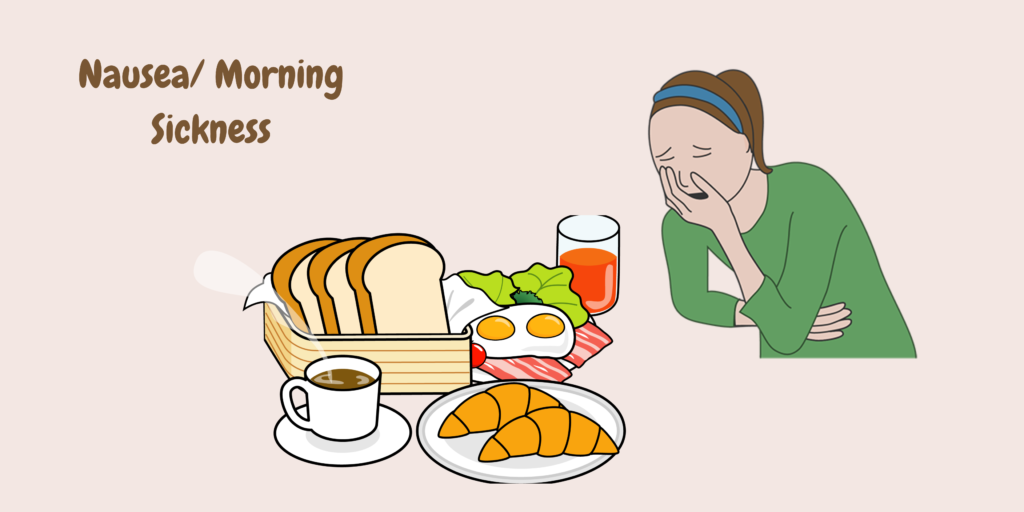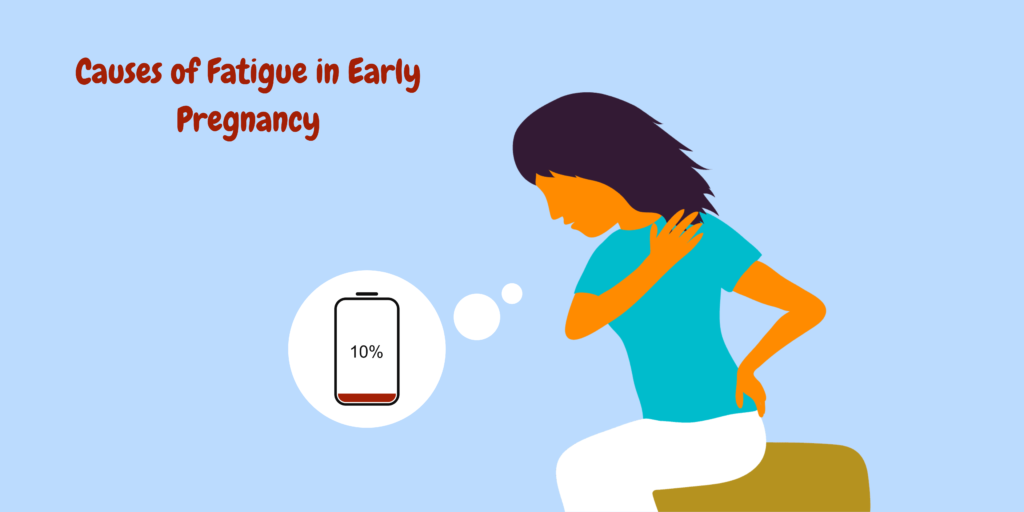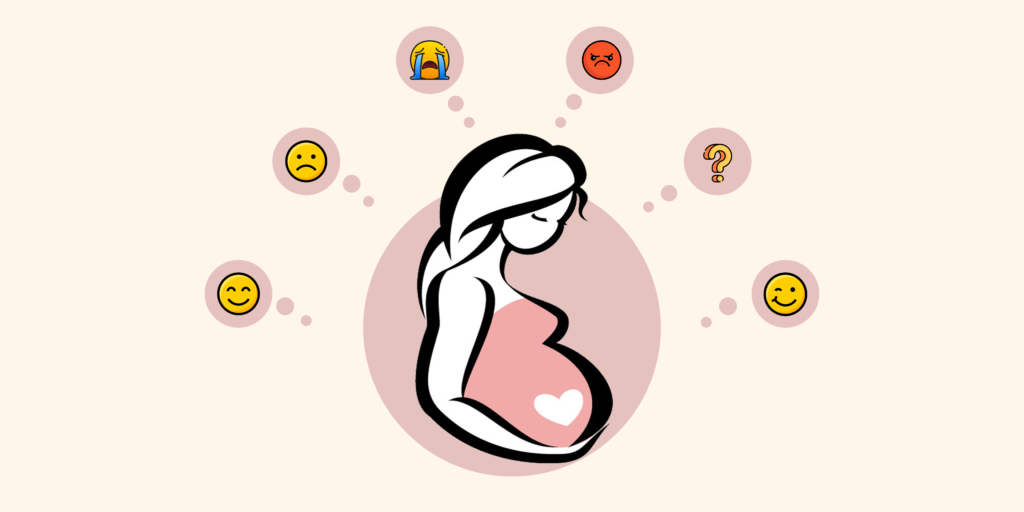Early Signs and Symptoms of Pregnancy
Early signs and symptoms of pregnancy can vary from person to person but some of the most common indicators include:
On this page

These symptoms result from hormonal changes as the body adjusts to support the developing fetus. While some women may notice a number of these signs, others might experience only a few, as the body is having changes during the early phase of pregnancy. If you are having a feeling of pregnancy, taking a home pregnancy test or consulting a healthcare provider can provide confirmation.
1. Missed Period
A missed period during early pregnancy is a major sign that conception may have occurred.
Timing:
If you have a regular menstrual cycle (usually 21-35 days), a missed period is typically the first indicator of pregnancy. A period that is late by a week or more can cause many to take a pregnancy test. But it doesn’t indicate that every time missing a period leads to pregnancy, it can also be due to stress or hormonal imbalance.
Hormonal Changes:
Upon conception, the body begins to produce human chorionic gonadotropin (HCG), a hormone that helps maintain the pregnancy and prevents ovulation, which in turn stops menstruation.
2. Nausea
Nausea is a common symptom in early pregnancy, often referred to as morning sickness, although it can occur at any time of day. It typically starts around the sixth week of pregnancy and can last until the end of the first trimester, though some women may experience it for a longer duration.

Symptoms:
- Vomiting: Some women may experience vomiting, but not everyone does.
- Food Aversions: Certain smells or foods can cause nausea.
- Fatigue: Increased tiredness can worse feelings of nausea.
Management:
To manage nausea, women can try:
- Eating Small, Frequent Meals: Keeping the stomach slightly full can help reduce nausea.
- Ginger: Ginger tea can be soothing for some women.
- Staying Hydrated: Drinking clear fluids throughout the day is important.
- Rest: Getting plenty of rest can help reduce feelings of nausea.
If nausea is severe or accompanied by vomiting, it’s important to consult a healthcare provider for further evaluation and management. Overall, while nausea can be uncomfortable, it is often a normal part of early pregnancy for many women.
3. Breast Changes
During pregnancy, many women experience a variety of breast changes due to hormonal fluctuations. Here are some common symptoms:
- Tenderness: Breasts may feel sensitive or painful, especially in the early stages of pregnancy.
- Swelling: Increased blood flow and hormonal changes can cause breasts to feel fuller and heavier.
- Darkening of the Nipples: The areolas (the area around the nipples) may darken and enlarge.
- Visible Veins: Veins in the breasts may become more prominent due to increased blood circulation.
- Changes in Nipple Sensitivity: Some women may notice heightened sensitivity or even soreness in the nipples.
- Lactation Changes: As pregnancy progresses, some women may start to produce colostrum, a thick yellowish fluid that precedes breast milk.
These changes are typically normal and indicate that the body is preparing for breastfeeding. If you have concerns about breast changes, it’s always a good to consult a healthcare provider.
4. Fatigue
Fatigue is a common symptom experienced during early pregnancy. Here’s a look at why it occurs and how it may affect you:

Causes of Fatigue in Early Pregnancy:
- Hormonal Changes: Increased levels of progesterone can lead to feelings of tiredness. This hormone helps maintain the pregnancy but can also make you feel more fatigued.
- Increased Blood Volume: Your body works harder to supply blood to the developing fetus, which can contribute to feelings of fatigue.
- Physical Changes: The body is undergoing many changes as it adjusts to pregnancy, which can be physically demanding.
- Emotional Factors: The excitement or anxiety of pregnancy can affect energy levels and lead to mental fatigue and stress.
- Sleep Disruptions: Hormonal changes and physical discomfort can disrupt sleep patterns, leading to daytime tiredness.
Managing Fatigue:
- Rest: Prioritize rest and listen to your body. Short naps can be useful.
- Balanced Diet: Eating a healthy, balanced diet can help maintain energy levels. Focus on whole grains, fruits, vegetables, and lean proteins.
- Stay Hydrated: Drink plenty of water to stay hydrated.
- Light Exercise: Gentle activities like walking or prenatal yoga can boost energy levels and improve mood.
- Sleep Hygiene: Establish a bedtime routine to improve sleep quality.
5. Frequent Urination
Frequent urination is a common symptom during pregnancy, particularly in the first and third trimesters. Here’s a closer look at why it happens:
Causes of Frequent Urination:
- Hormonal Changes: Increased levels of hormones, particularly human chorionic gonadotropin (HCG) and progesterone, can lead to increased blood flow to the kidneys, which in turn boosts urine production.
- Growing Uterus: As the uterus expands, it can put pressure on the bladder, reducing its capacity and leading to more frequent trips to the bathroom.
- Increased Fluid Intake: Pregnant women are often encouraged to stay well-hydrated, which can also cause to the need to urinate more often.
- Bladder Sensitivity: Hormonal changes can make the bladder more sensitive, prompting a need to urinate even with small amounts of urine.
Frequent urination is usually normal during pregnancy, but if you experience pain, burning, blood in the urine, or sudden changes in urinary habits, it’s important to consult a healthcare provider to check out for concerns if any.
6. Food Cravings or Aversions
Food cravings and aversions are common experiences during pregnancy, influenced by hormonal changes and heightened senses. Here’s a closer look:
Food Cravings:
- What They Are: Many pregnant women find themselves craving specific foods or flavors. Common cravings include sweets, salty snacks, dairy products, or certain fruits.
- Possible Causes:
- Hormonal Changes: Fluctuations in hormones can affect taste and smell, intensifying cravings.
- Nutritional Needs: Some cravings may signal the body’s need for certain nutrients. For example, craving dairy could indicate a need for calcium.
- Managing Cravings:
- Healthy Choices: When possible, try to choose healthier versions of your cravings (e.g., fruit instead of candy).
- Moderation: Enjoying cravings in balance can help maintain a balanced diet.
Food Aversions:
- What They Are: Many women experience strong aversions to certain foods or smells, which can range from mild dislike to intense aversion. Common aversions include meats, coffee, or spicy foods.
- Managing Aversions:
- Listen to Your Body: Avoid foods that trigger nausea, and focus on what you can eat.
- Experiment with Alternatives: Finding substitutes for aversive foods can help maintain nutrition without triggering nausea.
7. Mood Swings
Mood swings are a common symptom during pregnancy, mainly arising from the significant hormonal shifts the body experiences. Changes in estrogen and progesterone can impact neurotransmitters in the brain, triggering heightened emotional responses. It’s common for women to feel more irritable, anxious, or sentimental than usual, with rapid transitions between happiness and sadness.

These mood swings can be influenced by physical transformations, fatigue, and the stress associated with preparing for a new baby. It’s important for pregnant ladies to understand that such mood swings are normal and often temporary.
Communicating openly with partners and support networks can also reduce feelings of isolation. If mood swings become severe or disrupt daily activities, seeking guidance from a healthcare professional can be valuable.
8. Constipation
Constipation is a common issue during pregnancy, affecting many women due to a combination of hormonal changes, dietary shifts, and physical factors. Increased levels of progesterone can relax the muscles of the digestive tract, slowing down bowel movements. Additionally, the growing uterus can exert pressure on the intestines, further contributing to constipation.
To manage constipation during pregnancy, it’s important to increase fiber intake through fruits, vegetables, whole grains, and legumes. Drinking plenty of water to stay hydrated, as it helps soften stools. Regular physical activity, even light exercises like walking, can also promote healthy digestion.
9. Bloating and Cramping
Bloating and cramping are common symptoms experienced during pregnancy, particularly in the early stages. Bloating often occurs due to hormonal changes that slow down digestion and relax the muscles in the gastrointestinal tract, leading to feelings of fullness and discomfort. This can get worse by dietary changes and increased fluid retention.
Cramping, on the other hand, can be attributed to the body adjusting to pregnancy. Early on, mild cramping can result from the implantation of the fertilized egg in the uterine lining and the stretching of the uterus as it begins to grow. While some cramping is normal, it’s essential to distinguish between mild discomfort and severe pain.
To alleviate bloating, staying hydrated, eating smaller, more frequent meals, and incorporating fiber-rich foods can be helpful. For cramping, gentle stretching or light exercise may provide relief. However, if cramping becomes severe or is accompanied by other concerning symptoms like bleeding, it’s important to consult a healthcare provider.
10. Spotting or Implantation Bleeding
Spotting or implantation bleeding can occur in early pregnancy and is often one of the first signs that a woman may be pregnant. Implantation bleeding typically happens when a fertilized egg attaches to the uterine lining, which usually occurs around six to twelve days after conception. This can result in light spotting, which is often pink or brown in color, rather than the bright red associated with a menstrual period.
Many women may confuse implantation bleeding with their period, but it is usually much lighter and shorter in duration, lasting only a few hours to a couple of days.
If spotting is accompanied by heavy bleeding, severe cramping, or other concerning symptoms, it’s advisable to contact a healthcare provider to rule out any complications, such as a miscarriage or ectopic pregnancy.

